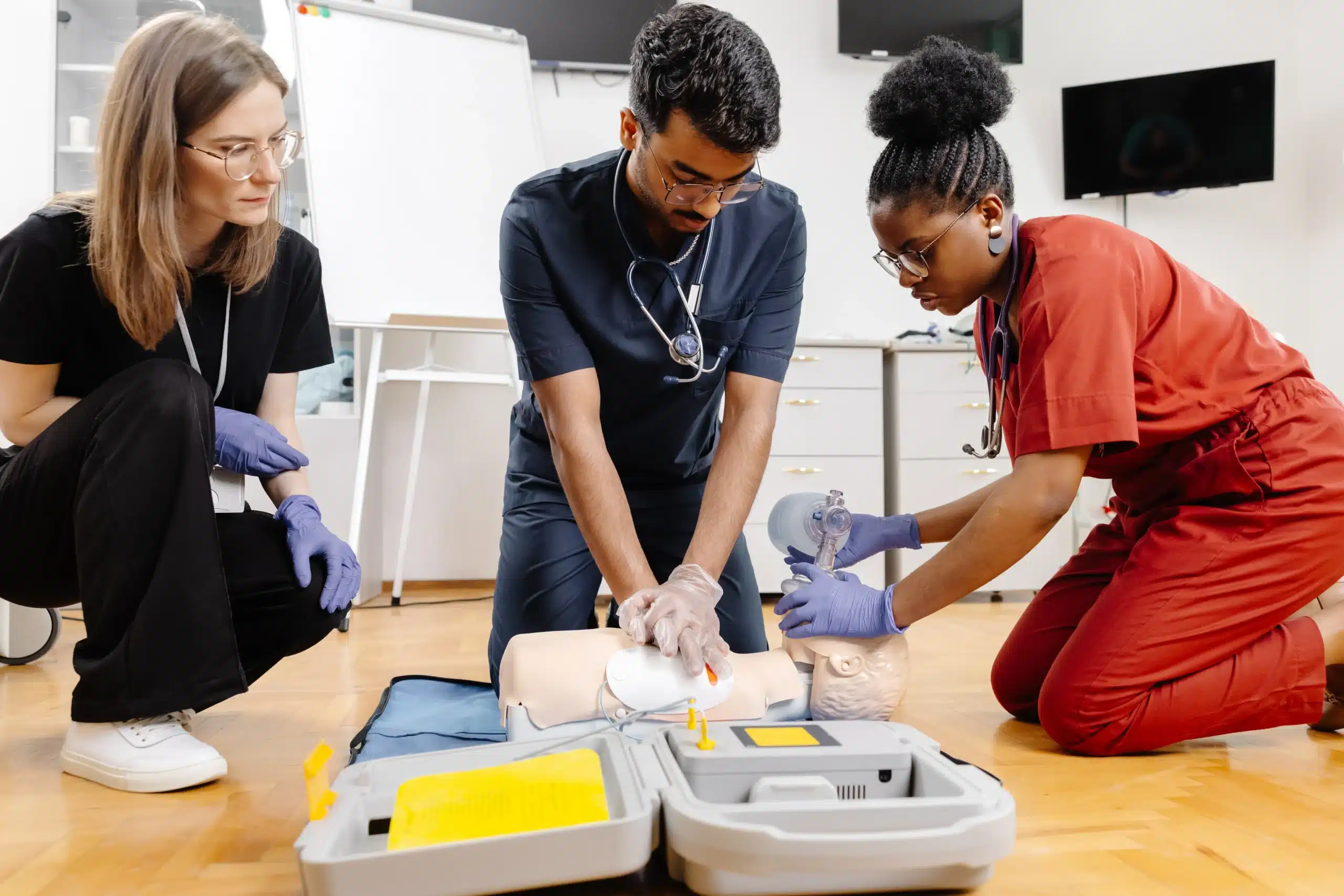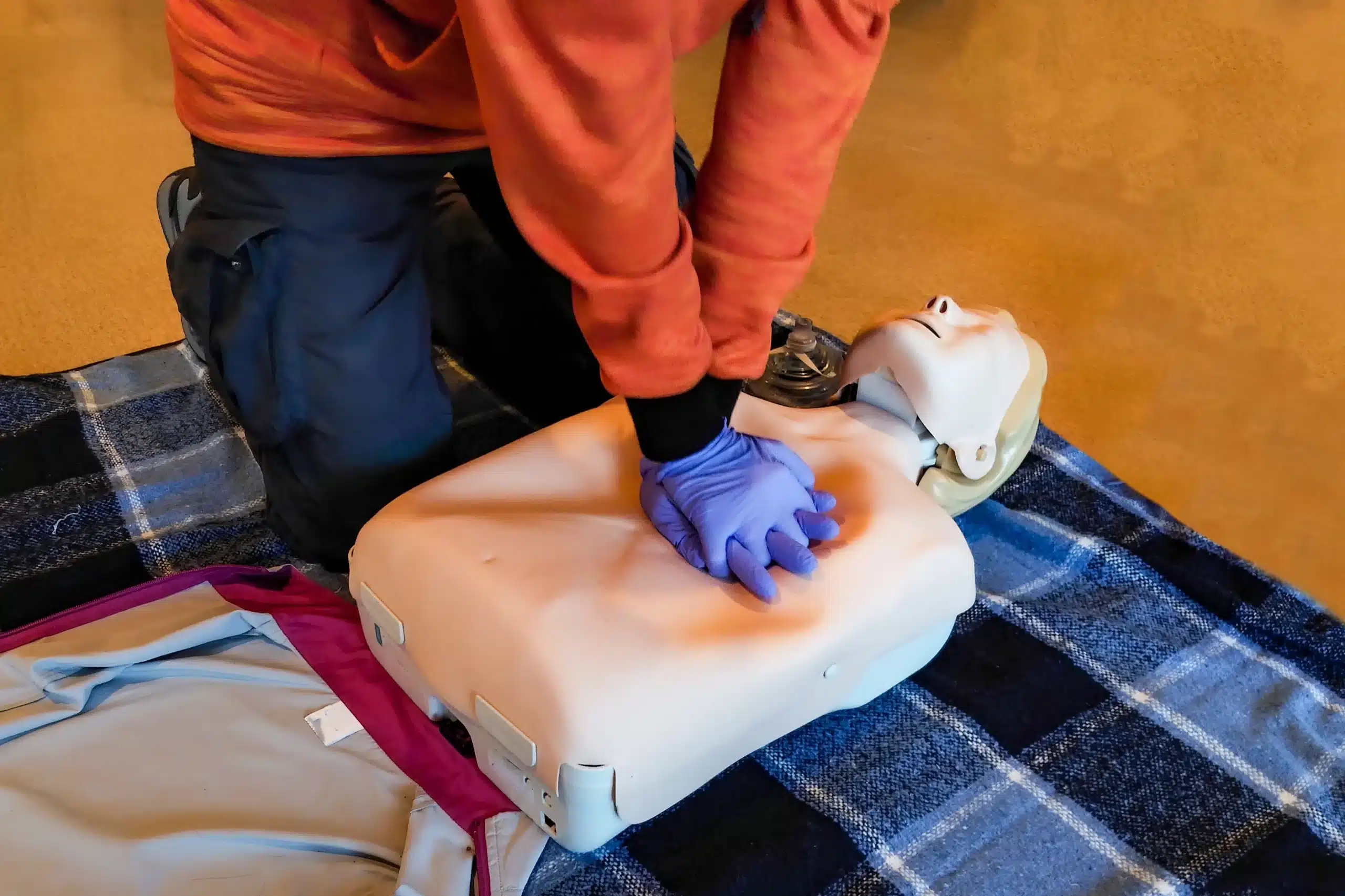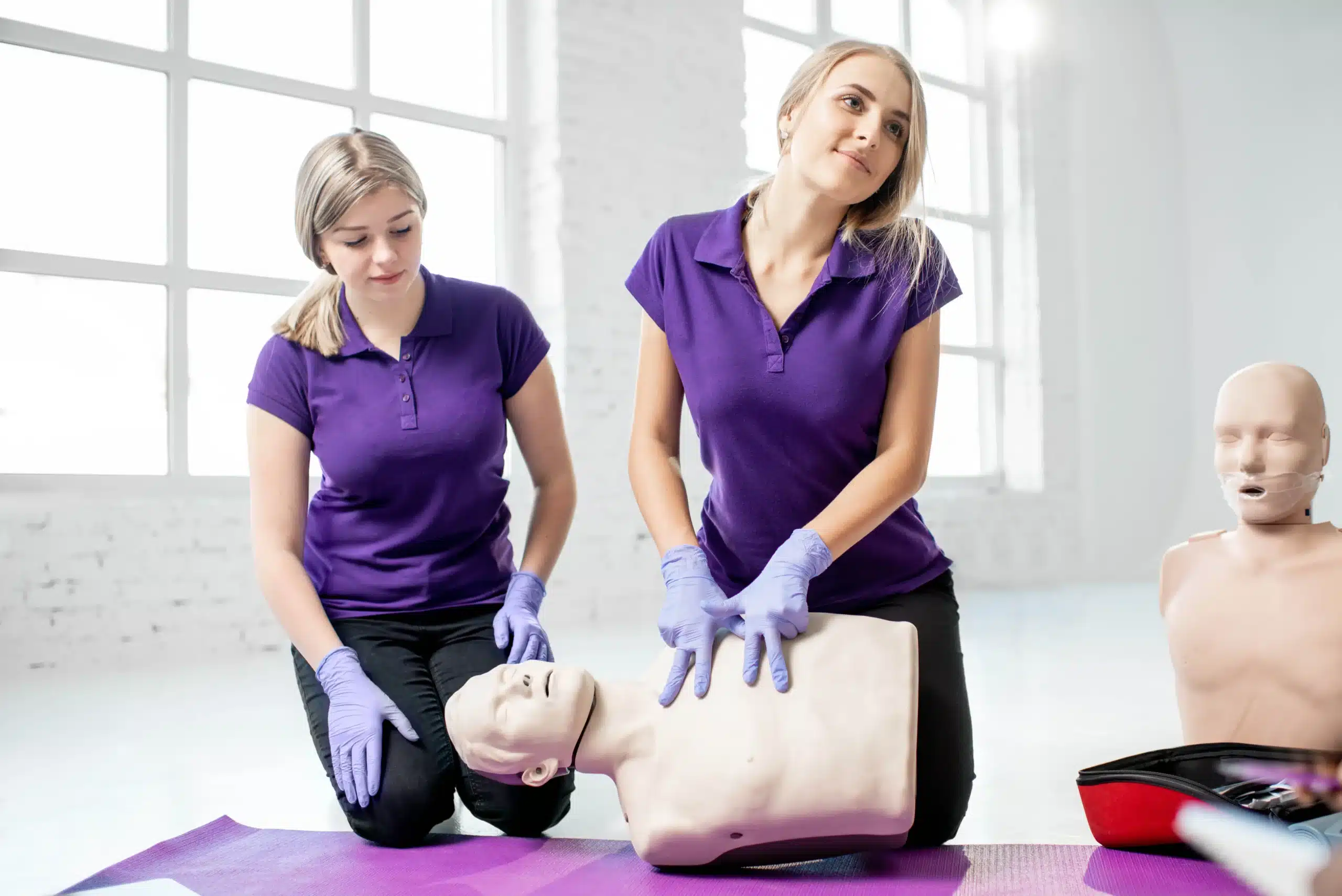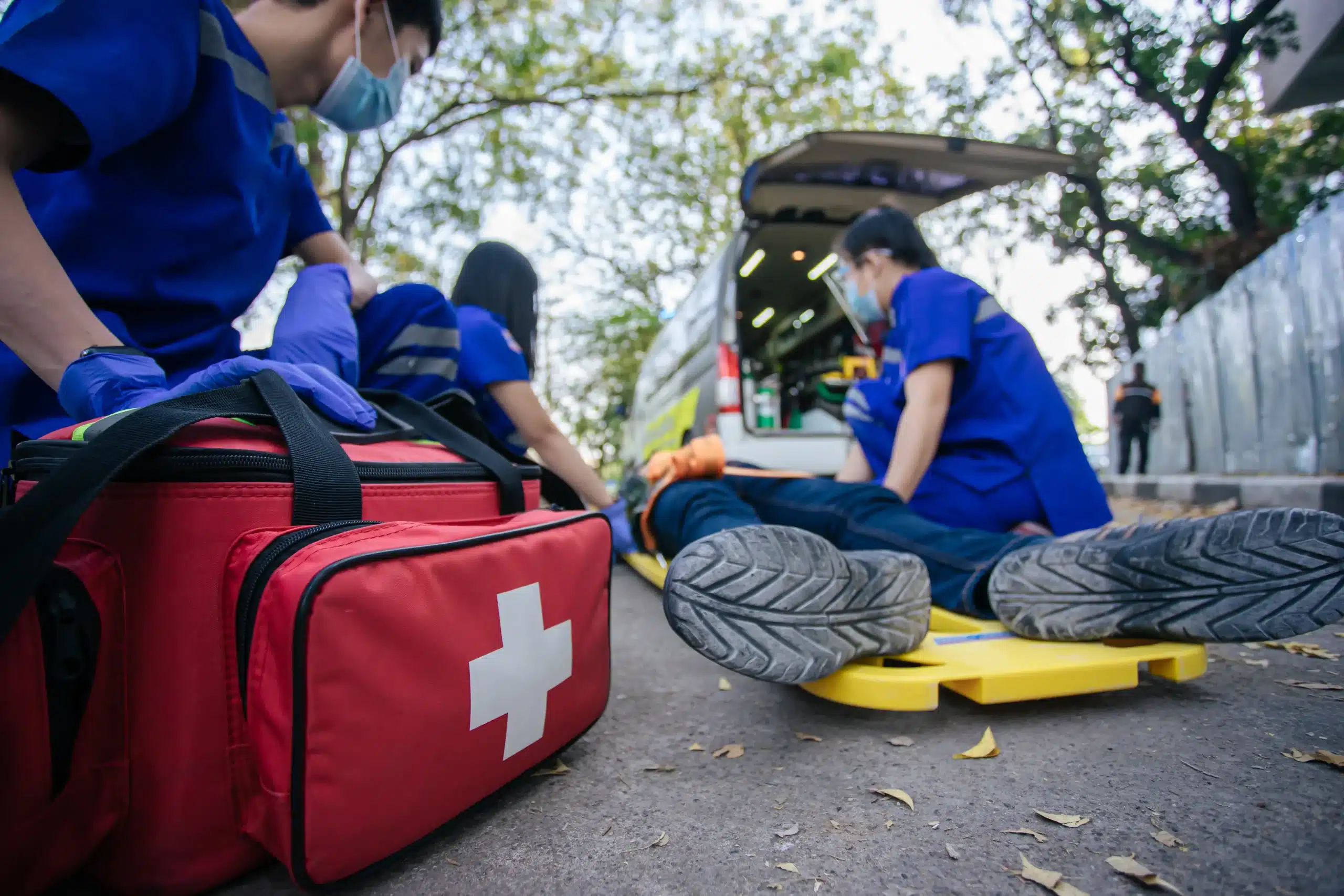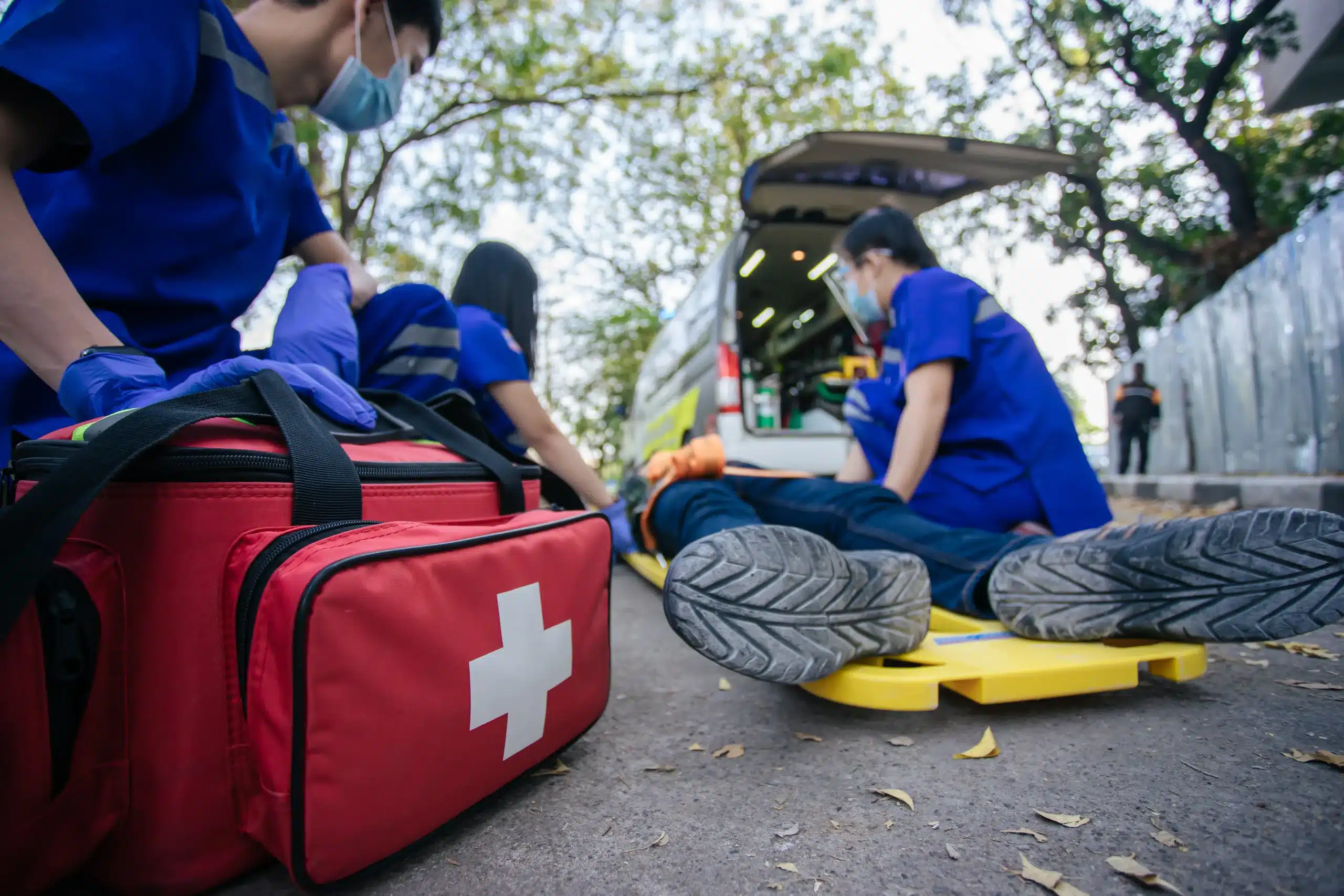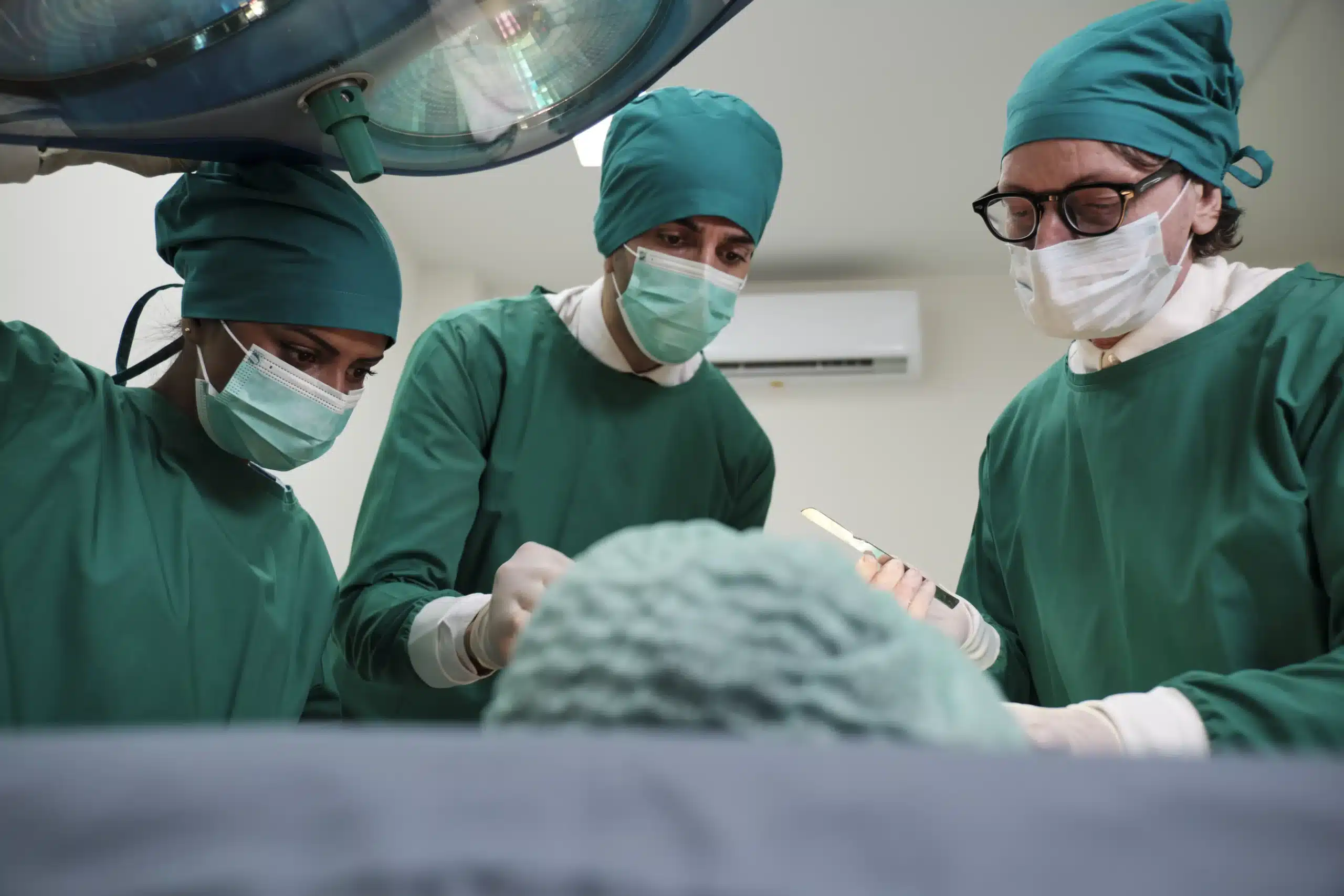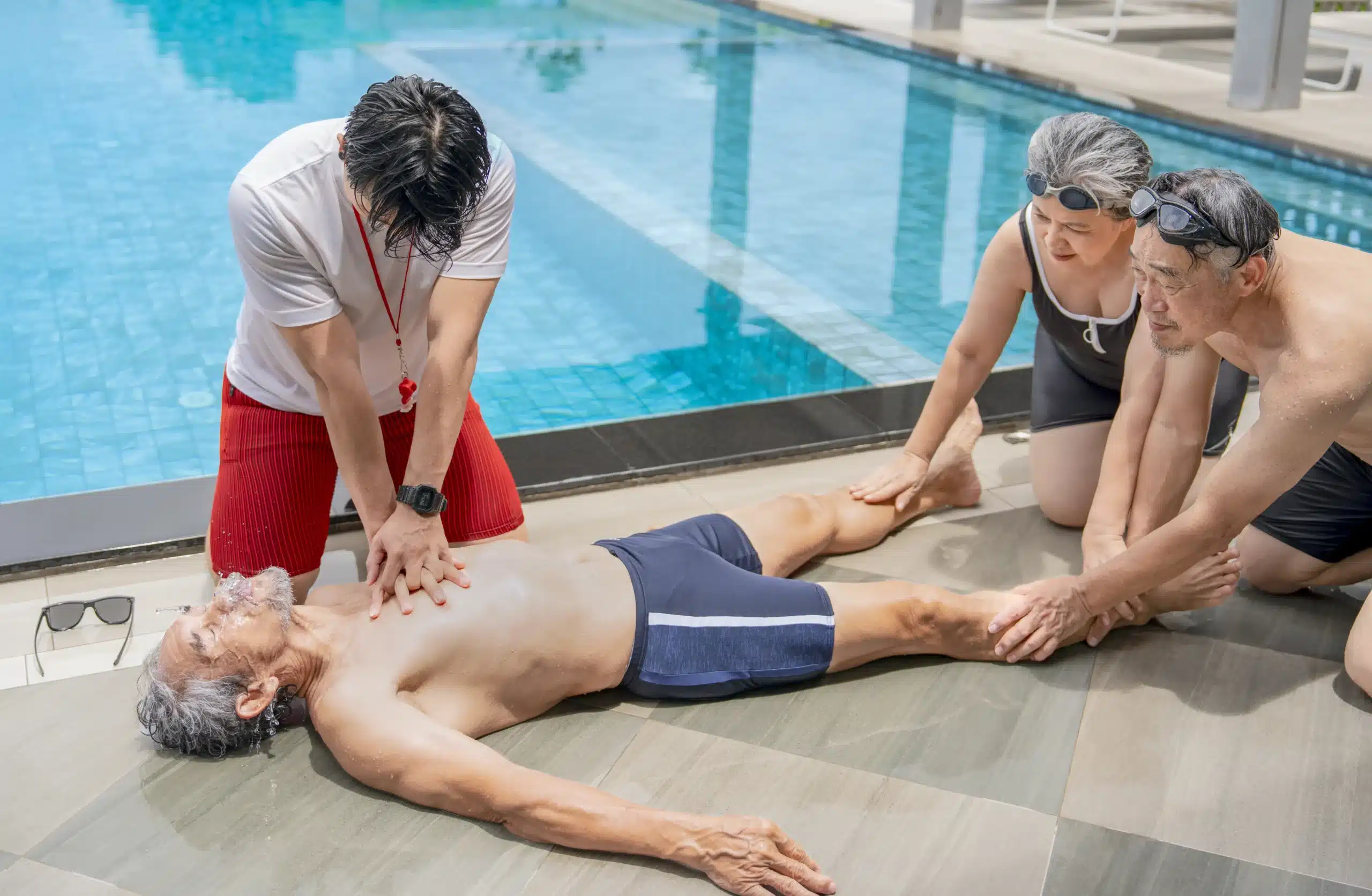Working as a nurse in Santa Clara, you know how critical it is to be prepared for any situation, especially when it comes to patient care. Cardiovascular emergencies demand quick thinking and advanced skills, and that’s where ACLS certification comes in. ACLS courses for nurses in Santa Clara provide the specialized training you need to confidently manage these high-stakes scenarios. This guide will cover everything from the basics of ACLS to the career benefits it offers. We’ll explore the core curriculum, discuss certification options, and provide practical advice for overcoming common challenges.
Key Takeaways
- ACLS is a must-have for nurses: It provides the advanced skills needed to manage serious heart emergencies, leading to better patient outcomes. This training goes beyond basic CPR and covers key areas like ECG interpretation and medication protocols.
- Choosing the right ACLS course is key: Think about convenience, instructor experience, and whether the course offers both online and in-person components. AHA certification is the gold standard.
- Stay current with your ACLS: Recertify every two years and pursue continuing education opportunities to keep your skills sharp and your knowledge up-to-date. This shows your commitment to providing excellent patient care.
What is ACLS Certification? Why is it Important for Nurses?
What is ACLS?
ACLS stands for Advanced Cardiovascular Life Support. It’s an advanced, evidence-based resuscitation course that teaches healthcare professionals how to manage life-threatening cardiovascular emergencies. Think of it as a specialized skill set that goes beyond basic CPR. ACLS focuses on the first 10 minutes of a cardiovascular emergency, emphasizing teamwork, effective communication, and high-performance resuscitation techniques. It covers a wide range of topics, including recognizing and managing cardiac arrest, strokes, and other serious heart conditions. The ACLS course includes essential skills like ECG interpretation, airway management, and medication administration.
Why Does ACLS Matter?
For nurses, ACLS certification is more than just a credential—it’s a vital tool for providing excellent patient care. In high-pressure emergency situations, ACLS training equips nurses with the knowledge and confidence to make quick, informed decisions that can significantly impact patient outcomes. Research shows that effective ACLS intervention can dramatically improve survival rates for patients experiencing cardiac arrest or other acute cardiovascular events. Beyond immediate patient care, ACLS certification can also enhance your career prospects. Many healthcare employers require or prefer nurses with ACLS certification, recognizing its value in maintaining a high standard of care. It demonstrates a commitment to professional development and can open doors to new opportunities. If you’re a nurse looking to elevate your skills and make a real difference in critical situations, ACLS certification is a crucial step.
Where Can Nurses Get ACLS Certified in Santa Clara?
If you’re a nurse looking for ACLS certification in Santa Clara, several options are available. Here’s a rundown of reputable providers:
Santa Clara CPR Classes
Santa Clara CPR Classes offers a convenient and affordable way to earn your ACLS certification. They offer various American Heart Association certification courses, including BLS, PALS, and First Aid, making them a one-stop shop for your certification needs. Their flexible schedules and low price guarantee make them an attractive option for busy professionals. Serving Santa Clara, Milpitas, and San Jose, their central location is easily accessible.
Kaiser Permanente
For nurses affiliated with Kaiser Permanente, their Northern California facilities offer AHA-certified ACLS courses. These courses are designed for healthcare professionals, ensuring you gain the skills to handle cardiovascular emergencies within the Kaiser Permanente system.
Stanford Health Care
Stanford Health Care also provides ACLS certification courses tailored for healthcare providers. Their focus on advanced skills and real-life scenarios makes them a solid choice for nurses seeking comprehensive training.
O’Connor Hospital
O’Connor Hospital offers ACLS training as part of their commitment to healthcare education. Check with their education department for upcoming ACLS courses and availability. This can be a convenient option for nurses already working or affiliated with the hospital.
Mission College
Mission College offers ACLS certification geared toward nursing students and healthcare professionals. Their program helps you meet the requirements for advanced cardiac life support and prepares you for emergency situations. This is a good option for those seeking an academic approach to ACLS certification.
Find the Right ACLS Course Format & Schedule
As a nurse, your schedule is likely demanding. Finding the right ACLS course format and schedule is key to successfully completing your training. Let’s explore some options:
In-Person ACLS Training
In-person ACLS courses in Santa Clara offer hands-on learning and direct interaction with instructors. This format allows for immediate feedback and clarification on complex concepts. While online courses effectively cover the theoretical aspects of ACLS, most certifying bodies, including the American Heart Association, require an in-person skills assessment for certification. This makes in-person training essential for practicing the necessary skills and demonstrating competency.
Online & Hybrid ACLS Courses
For nurses balancing work, family, and other commitments, online and hybrid ACLS courses offer increased flexibility. ACLS HeartCode combines online coursework with an in-person skills session. This blended learning format allows you to learn the material at your own pace and then schedule a convenient time for hands-on practice. This approach can be particularly helpful for visual learners who benefit from interactive online modules and simulations.
Flexible ACLS Schedules for Busy Nurses
Many training centers understand the scheduling challenges nurses face. Santa Clara CPR Classes, for example, offers daily and weekend options for skills sessions. This flexibility allows you to fit your training around your existing work schedule. Look for providers who offer a range of class times and convenient locations in San Jose and the surrounding areas. Features like competitive pricing and a low price guarantee can also make a big difference.
How Much Does ACLS Certification Cost?
Getting ACLS certified is an investment in your career and your ability to provide critical care. But how much does it actually cost? Let’s break down the typical expenses for ACLS certification in Santa Clara.
Average ACLS Course Prices in Santa Clara
In Santa Clara, the average cost for an ACLS course hovers around $290. This usually covers the online portion, the in-person skills session, and your official certification card. Santa Clara CPR Classes, for example, offers this comprehensive package. This makes it easy to budget for your training.
ACLS Discounts and Group Rates
Looking to certify a whole team? Many training centers offer discounts for group ACLS classes. This can be a smart way to make training more affordable. Santa Clara CPR Classes is one example of a provider that offers these group discounts. These discounts can significantly reduce the cost, especially for larger groups.
Low Price Guarantees for ACLS Courses
Finding a balance between quality training and affordability is key. Look for providers who offer a low-price guarantee, like Santa Clara CPR Classes. This ensures you’re getting the best possible value. Knowing you’re getting a competitive price can give you peace of mind when choosing the right ACLS course.
ACLS Prerequisites & Eligibility
Before you jump into an Advanced Cardiovascular Life Support (ACLS) course, it’s helpful to understand the requirements. Knowing the prerequisites ensures you’re prepared and eligible for certification.
Healthcare License Requirements
Generally, ACLS certification is designed for licensed healthcare providers. This includes professionals like physicians, nurses, paramedics, respiratory therapists, and other clinicians involved in cardiac emergencies. While specific requirements can vary, holding a current healthcare license is typically essential. Check with your certifying organization, such as the American Heart Association (AHA), for the most up-to-date information on eligibility.
BLS Certification Requirements
A strong foundation in Basic Life Support (BLS) is crucial for ACLS. You’ll need to demonstrate competency in high-quality CPR and AED use for adults. This means being proficient in chest compressions, rescue breaths, and using an automated external defibrillator. Some ACLS courses may require proof of current BLS certification, so it’s best to have that ready.
ECG Rhythm Interpretation Skills
ACLS involves managing complex cardiac rhythms, so you should be able to interpret electrocardiograms (ECGs). This includes recognizing rhythms both on a monitor and on paper tracings. You’ll need to connect your BLS skills with ECG interpretation and pharmacology knowledge to effectively manage cardiac emergencies. This prerequisite highlights the advanced nature of ACLS and its focus on comprehensive patient care. If you need to brush up on your skills, consider reviewing resources or taking a refresher course before your ACLS training.
What Happens in an ACLS Course?
This section covers what you can expect during an ACLS course, from the core curriculum to the hands-on practice and final assessment. Understanding these elements will help you feel prepared and confident going into your training.
Core Curriculum & Skills
ACLS training goes beyond basic CPR. It provides a comprehensive approach to managing cardiovascular emergencies, equipping healthcare providers with the advanced skills necessary for better patient outcomes. The core curriculum covers essential topics such as ECG interpretation, recognizing and managing different heart rhythms, effective medication administration protocols, and advanced airway management techniques. These skills are crucial for responding effectively to life-threatening situations. You’ll learn how to rapidly assess a patient experiencing a cardiovascular emergency and implement the appropriate treatment algorithms.
Hands-On Practice & RQI
ACLS courses emphasize hands-on practice to build proficiency in essential skills. You’ll work with realistic simulations and scenarios, allowing you to apply your knowledge in a controlled environment. Many ACLS courses incorporate the American Heart Association’s RQI program, a modern approach to resuscitation training. RQI uses innovative technology and frequent practice to reinforce skills and improve competency. Some courses also offer a blended learning format like ACLS HeartCode, which combines online coursework with in-person skills sessions. This flexible approach lets you learn at your own pace and choose a convenient time for your hands-on practice.
Assessment & Certification
To receive your ACLS certification, you’ll need to demonstrate competency in both the knowledge and skills components of the course. This typically involves a written exam covering the core curriculum and a practical skills test where you perform the learned procedures. For blended learning formats like HeartCode ACLS, you’ll complete the online portion first, followed by a shorter, in-person skills session to confirm your proficiency. Upon successful completion of both assessments, you’ll receive your official American Heart Association ACLS certification card, valid for two years.
Career Benefits of ACLS Certification
As a nurse, your skills and certifications directly impact patient care. Earning your Advanced Cardiovascular Life Support (ACLS) certification opens doors to career advancement and significantly improves your ability to deliver high-quality care. Let’s explore some key benefits of ACLS certification for nurses in Santa Clara.
Improve Your Emergency Response Skills
ACLS certification equips you with the advanced skills needed to manage complex cardiac emergencies. This specialized training goes beyond basic life support, focusing on a systematic approach to patient care during life-threatening situations. You’ll gain a deeper understanding of ECG rhythm interpretation, airway management, and pharmacological interventions. These enhanced skills not only improve patient outcomes but also instill greater confidence in your decision-making during critical moments. For a comprehensive guide to ACLS, check out this helpful resource.
Advance Your Nursing Career with ACLS
In today’s competitive healthcare landscape, ACLS certification is a valuable asset. The demand for ACLS-certified nurses is consistently high, giving you a competitive edge when applying for jobs. Many employers prioritize candidates with ACLS certification, recognizing it as a mark of advanced proficiency and dedication to professional development. This certification can lead to new opportunities, increased earning potential, and greater job security. Learn more about how ACLS can benefit your nursing career.
Meet Employer Requirements in Santa Clara
Many healthcare facilities in Santa Clara require nurses to hold ACLS certification. This requirement reflects the commitment to providing the highest standard of patient care during cardiac emergencies. By obtaining your ACLS certification, you’ll meet these essential job qualifications and demonstrate your readiness to handle critical situations. This can be a deciding factor in securing a position at top hospitals and clinics in the area. This guide offers further insights into ACLS certification requirements for nurses.
Overcome ACLS Certification Challenges
Getting your ACLS certification is a rewarding step in any healthcare professional’s career. But like any worthwhile pursuit, it has its challenges. Don’t worry, we’re here to break down those hurdles and offer practical tips to help you succeed.
Manage Your Time Effectively
Juggling work, family, and studying for ACLS can feel overwhelming. Effective time management is key. Start by creating a realistic study schedule that fits your lifestyle. Break down the material into smaller, manageable chunks, and set aside dedicated study time each day or week. Even short, focused study sessions are more effective than cramming the night before. Consider using time management techniques like the Pomodoro method to stay on track and maximize your productivity.
Handle High-Pressure Situations
ACLS scenarios, by nature, are high-pressure. The ability to think clearly and act decisively is crucial. During your ACLS course at Santa Clara CPR Classes, take advantage of every opportunity for hands-on practice and simulations. These experiences will build your confidence and help you develop the quick thinking and adaptability needed in real-life emergencies. Remember, practice makes perfect, and the more you simulate these scenarios, the better prepared you’ll be. Check out these tips for handling pressure to get a head start.
Communicate Effectively in Teams
Clear and concise communication is paramount in any medical setting, especially during emergencies. ACLS training emphasizes teamwork, and effective communication is the cornerstone of a successful team. Practice communicating clearly and respectfully with your colleagues during simulations. Actively listen to others, share information concisely, and ensure everyone is on the same page. Strong communication skills will not only help you pass your ACLS certification but also make you a more valuable member of any healthcare team.
Choose the Right ACLS Course
Finding the right ACLS course can feel overwhelming with so many options available. But by focusing on a few key factors, you can choose a program that sets you up for success. Whether you’re in Milpitas, San Jose, or Santa Clara, this section will guide you through the decision-making process.
Compare ACLS Courses & Providers
Start by researching different ACLS course providers in your area. Look into established providers like Santa Clara CPR Classes, which has served the community since 1989. Consider factors like class size, schedule flexibility, and overall course structure. While online resources can be helpful, remember that hands-on skills practice is essential for ACLS certification. Most certifying bodies, including the American Heart Association, require an in-person skills assessment. Many training centers, like those offering ACLS courses in San Jose, offer various formats to accommodate busy schedules. Make sure to choose a course that balances theoretical knowledge with practical application.
Evaluate Instructor Qualifications
The expertise of your instructor plays a significant role in your learning experience. Look for ACLS courses taught by experienced healthcare professionals with a strong background in emergency care. Instructors who actively practice in the field can offer valuable real-world insights. Santa Clara CPR Classes emphasizes the importance of hands-on training and experienced instructors, a practical approach that can boost your confidence when applying ACLS skills. Consider asking about an instructor’s background and experience before enrolling in a course.
AHA Certification vs. Other Options
While several organizations offer ACLS training, certification through the American Heart Association is widely recognized and respected in healthcare. AHA certification ensures your training aligns with the latest evidence-based guidelines. This is especially important for healthcare providers responding to emergencies like cardiac arrest and stroke. ACLS certification equips you with essential skills to manage these critical situations. For nurses in Santa Clara and surrounding areas, AHA certification from a reputable provider is a worthwhile investment.
Maintain Your ACLS Certification
Once you’ve earned your ACLS certification, staying current is key. This keeps your skills sharp and demonstrates your commitment to providing excellent patient care. Here’s how to maintain your ACLS certification and stay at the forefront of advanced cardiovascular life support:
Renew Your ACLS Certification
ACLS certification is valid for two years. Before it expires, recertify to maintain your qualifications and continue providing advanced cardiovascular life support. Track your expiration date and plan to recertify in advance to avoid any lapse in your credentials. This proactive approach ensures you’re always prepared to handle cardiac emergencies.
Explore Continuing Education
The medical field is constantly evolving, so ongoing learning is essential. Online training offers convenient access to industry-leading education, allowing you to fit continuing education into your busy schedule. Look for courses that offer training in digestible segments to improve knowledge retention and enhance patient outcomes. This ongoing learning demonstrates your commitment to providing the best possible care.
Stay Updated on AHA Guidelines
Staying informed about the latest American Heart Association (AHA) guidelines is crucial for providing effective care. Many organizations offer free resources to help you stay up-to-date on current practices and recommendations. Regularly reviewing these resources ensures you’re aligned with the latest advancements in advanced cardiovascular life support. This commitment to staying informed benefits both you and your patients.
Related Articles
- ACLS Certification in San Jose: Your Comprehensive Guide – Santa Clara CPR Classes
- ACLS HeartCode Santa Clara: Your Certification Guide – Santa Clara CPR Classes
- ACLS Certification in Milpitas: Your Comprehensive Guide – Santa Clara CPR Classes
- ACLS Renewal Near Me: How to Recertify – Santa Clara CPR Classes
- ACLS HeartCode in San Jose: Costs, Schedules & Locations – Santa Clara CPR Classes
Frequently Asked Questions
Why is ACLS certification important for nurses? ACLS certification equips nurses with advanced life-saving skills specifically for cardiovascular emergencies. It empowers them to make critical decisions, potentially improving patient outcomes in high-pressure situations. Having this specialized training can also boost career prospects and open doors to more specialized roles. Many employers prefer or require ACLS certification for nurses in critical care settings.
What does an ACLS course typically cover? An ACLS course delves into advanced techniques beyond basic CPR. You’ll learn ECG interpretation, airway management, appropriate medication administration, and effective team communication during emergencies. The course uses realistic scenarios and simulations to reinforce these skills, preparing you for real-world situations.
How can I fit ACLS training into my busy schedule? Many ACLS providers understand the demands on a nurse’s time. Look for courses offering flexible scheduling options, such as evening, weekend, or hybrid formats that combine online learning with in-person skills sessions. This allows you to learn the material at your own pace and choose a skills session time that works best for you.
How much does ACLS certification cost, and are there ways to save? ACLS course costs vary, but you can generally expect to pay around $290 in Santa Clara. Some training centers offer discounts for group registrations, so if you’re certifying with colleagues, explore those options. Also, look for providers with a low-price guarantee to ensure you’re getting a competitive rate.
How can I overcome the challenges of ACLS training and certification? Effective time management is key. Create a realistic study schedule and stick to it. Don’t be afraid to ask for support from colleagues or family. Take advantage of practice scenarios and simulations to build your confidence in handling high-pressure situations. Remember, the goal is to develop competence and confidence in your skills, so embrace the learning process.
